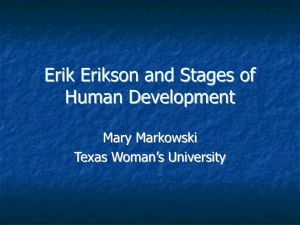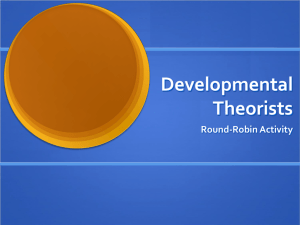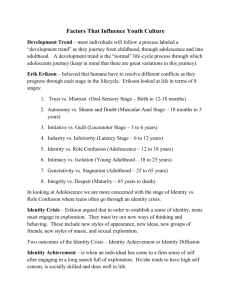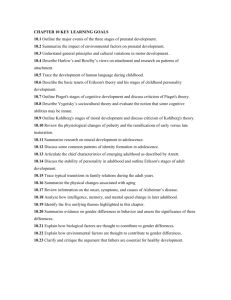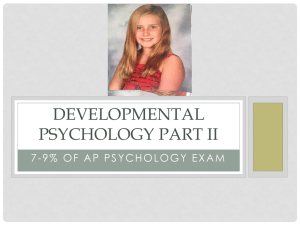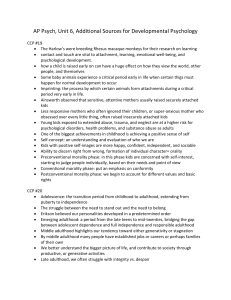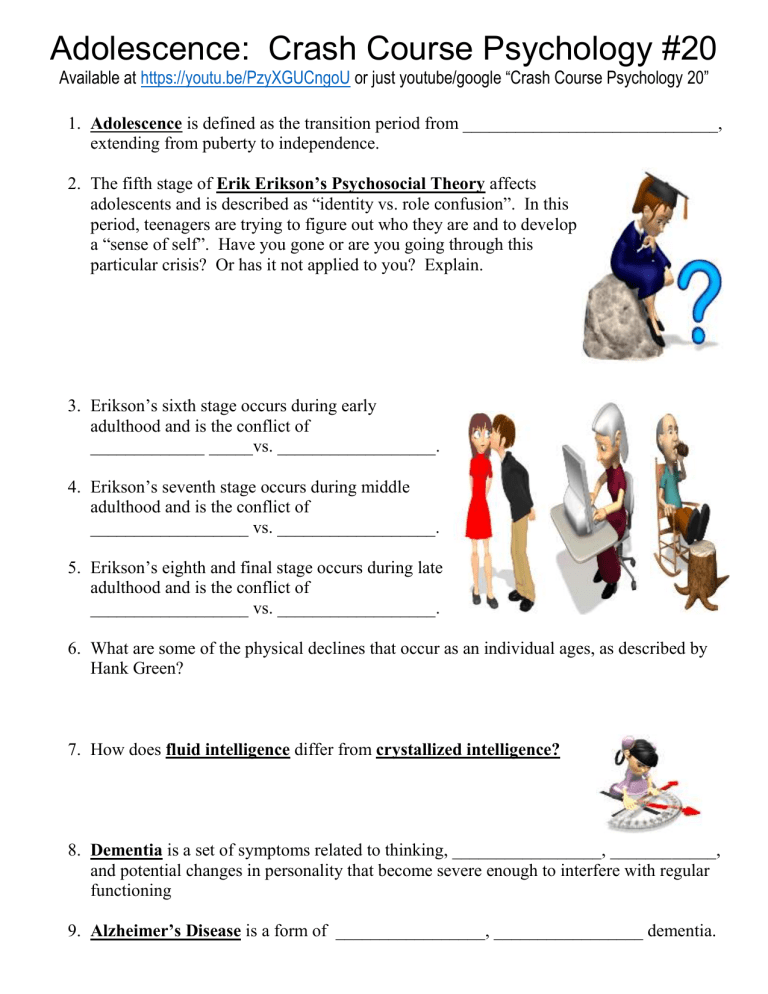
Adolescence: Crash Course Psychology #20 Available at https://youtu.be/PzyXGUCngoU or just youtube/google “Crash Course Psychology 20” 1. Adolescence is defined as the transition period from _____________________________, extending from puberty to independence. 2. The fifth stage of Erik Erikson’s Psychosocial Theory affects adolescents and is described as “identity vs. role confusion”. In this period, teenagers are trying to figure out who they are and to develop a “sense of self”. Have you gone or are you going through this particular crisis? Or has it not applied to you? Explain. 3. Erikson’s sixth stage occurs during early adulthood and is the conflict of _____________ _____vs. __________________. 4. Erikson’s seventh stage occurs during middle adulthood and is the conflict of __________________ vs. __________________. 5. Erikson’s eighth and final stage occurs during late adulthood and is the conflict of __________________ vs. __________________. 6. What are some of the physical declines that occur as an individual ages, as described by Hank Green? 7. How does fluid intelligence differ from crystallized intelligence? 8. Dementia is a set of symptoms related to thinking, _________________, ____________, and potential changes in personality that become severe enough to interfere with regular functioning 9. Alzheimer’s Disease is a form of _________________, _________________ dementia. Psychology Crash Course Answer Keys Psychology Crash Course 20 – Adolescence 1. Childhood to adulthood 2. Answers will vary 3. Intimacy vs. isolation 4. Generativity vs. stagnation 5. Integrity vs. despair 6. Declines in reaction time, strength, muscle tone, cardiac output, sex hormone production, sharpness of senses 7. Fluid intelligence is the ability to solve problems while crystallized intelligence is knowledge based on facts 8. Memory loss, confusion 9. Progressive, irreversible
